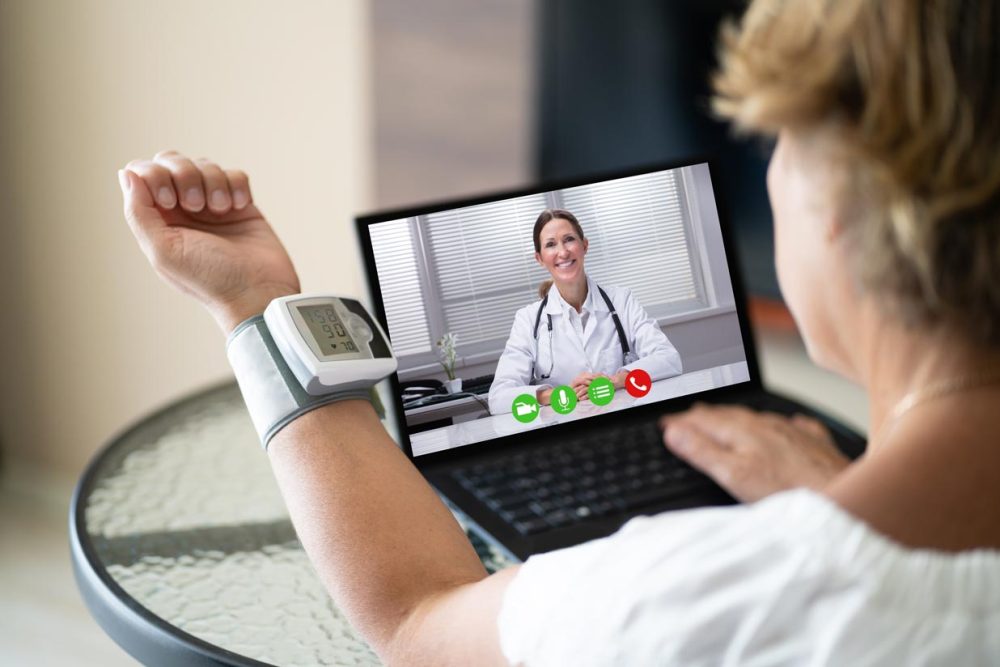Advertisment
New telehealth stroke certification available to health care professionals

Significant barriers prevent or slow treatment for many patients with stroke, including long travel times to stroke center hospitals and the lack of availability of stroke specialists who can evaluate the patient and determine if they are a candidate for treatment.[1] Telehealth stroke care, also known as telestroke, can expand access to rural areas and other communities that face barriers to stroke care.
A new American Heart Association certification for health care professionals is designed to help standardize training and increase skills and competencies for health care providers in telehealth stroke care delivery, as well as help improve stroke outcomes through the integration of telehealth. This is the third individual certification available through the American Heart Association’s best-in-class, science-based certification portfolio.
An estimated 9.4 million Americans ages 20 and older have had a stroke, and stroke accounts for about 1 of every 19 deaths in the United States.[2] Stroke is a leading cause of serious long-term disability in the United States. And the problem is only getting worse — projections show a 20.5% increase in stroke prevalence by 2030.[3]
Telehealth stroke care uses interactive videoconferencing to provide specialists timely data to assist clinicians at the bedside in stroke-related decision-making for people seeking care at distant facilities that do not have a stroke neurologist available around the clock.
“Timely access to the latest therapies through expanded use of telehealth-enabled stroke care has been shown to greatly improve the quality of care and reduce disability from stroke, especially in areas with fewer neurologists and stroke experts,” said Lee Schwamm, M.D., FAHA, volunteer member of the American Heart Association Center for Telehealth Expert Panel; senior vice president and chief digital health officer of Yale New Haven Health; and associate dean of digital strategy and transformation at Yale School of Medicine. “The American Heart Association’s individual telehealth stroke certification is a way for health care professionals to ensure they are providing the highest quality of care and leveraging this evolving delivery modality to its fullest potential.”
The new telehealth individual certification, supported by the Leona M. and Harry B. Helmsley Charitable Trust, is available through the Association’s Professional Education Hub™. The certification is an offering of the American Heart Association Center for Telehealth.
The certification is open to licensed medical professionals who complete prerequisite education. The certification process features:
- high-quality, evidence-based online telehealth stroke education that combines research, hands-on experiences and best practices;
- assessment delivery via live remote-proctoring, certification award and renewal via American Heart Association platforms; and
- individual promotional opportunities by display of personalized certificate award and credentials, which are good for three years.
Additional Resources:
- Spanish news release
- New telehealth certification available to health care professionals | American Heart Association
- Telehealth | American Heart Association
- Telestroke Fact Sheet (heart.org)
[1] Jauch EC, et al. Recommendations for regional stroke destination plans in rural, suburban, and urban communities from the prehospital stroke system of care consensus conference. Stroke. 2021 52(5), e133-e152.
[2] Chapter 15. Heart Disease and Stroke Statistics—2024 Update: A Report From the American Heart Association. January 24, 2024. Circulation. 2024;149:e347–e913. https://www.ahajournals.org/doi/10.1161/CIR.0000000000001209.
[3] Ibid.





